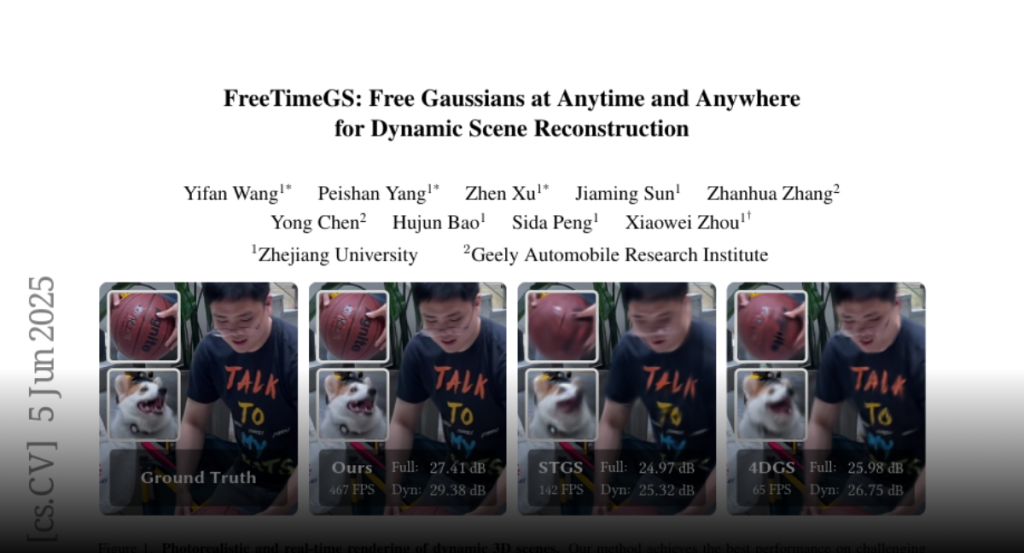A novel 4D representation, FreeTimeGS, enhances the modeling of dynamic 3D scenes by enabling Gaussian primitives to appear at arbitrary times and locations, improving rendering quality compared to existing methods.
This paper addresses the challenge of reconstructing dynamic 3D scenes with
complex motions. Some recent works define 3D Gaussian primitives in the
canonical space and use deformation fields to map canonical primitives to
observation spaces, achieving real-time dynamic view synthesis. However, these
methods often struggle to handle scenes with complex motions due to the
difficulty of optimizing deformation fields. To overcome this problem, we
propose FreeTimeGS, a novel 4D representation that allows Gaussian primitives
to appear at arbitrary time and locations. In contrast to canonical Gaussian
primitives, our representation possesses the strong flexibility, thus improving
the ability to model dynamic 3D scenes. In addition, we endow each Gaussian
primitive with an motion function, allowing it to move to neighboring regions
over time, which reduces the temporal redundancy. Experiments results on
several datasets show that the rendering quality of our method outperforms
recent methods by a large margin.

